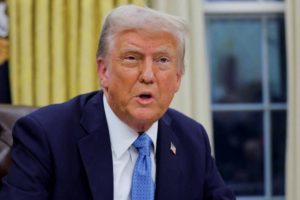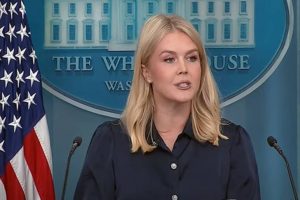Indian equity markets opened in the red on Friday morning following U.S. President Donald Trump’s executive order imposing a 25% tariff on Indian exports, effective August 7. The move has sparked fresh concerns over India’s export competitiveness, particularly in one of its key markets—the United States.
At the opening bell:
- Nifty 50 slipped by 33.45 points (0.14%) to 24,734.90
- BSE Sensex dropped 111.17 points (0.14%) to 81,074.41
Experts attributed the downbeat sentiment to a combination of trade uncertainty, weak earnings, and lack of major policy support from the government. Market analyst Ajay Bagga remarked, “Markets are suffering from the Trump tariff shock, muted earnings, and an absence of bold economic stimulus. Without a major reform push, there’s little to excite investors.”
While the executive order was signed on August 1, the tariffs will be implemented from August 7, allowing U.S. Customs time to update systems. The order applies to goods “entered for consumption” on or after 12:01 a.m. EDT on that date.
Other key developments:
- Broader indices showed mixed trends:
- Nifty 100 fell 0.18%
- Nifty Midcap 100 edged up 0.04%
- Nifty Smallcap dropped 0.29%
- Nifty FMCG was the only major sectoral index to open in green
- Nifty IT (-0.51%), Pharma (-1.16%), and Metal (-0.43%) showed weakness
- Bank Nifty struggled to hold above 56,100; could fall to 55,500 if 55,700 support breaks
Technical analyst Shrikant Chouhan noted that as long as Nifty holds above 24,750, a pullback is possible toward 24,900–25,000. A break below 24,600, however, could lead to further downside pressure.
Adding to the volatility, several prominent companies, including ITC, Adani Power, Tata Power, Godrej Properties, and LIC Housing Finance, are scheduled to announce their Q1 earnings today.
Global ripple effects:
Other Asian markets mirrored the weak sentiment:
- Nikkei 225 was down 0.23%
- Hang Seng fell 0.43%
- Taiwan Weighted Index also traded lower
The U.S. has also slapped new tariffs on several other countries:
- Indonesia (19%), Pakistan (19%), Sri Lanka (20%),
- Myanmar (40%), Japan and South Korea (15%), and South Africa (30%)
With global trade uncertainty intensifying, investors are likely to remain cautious in the near term.





